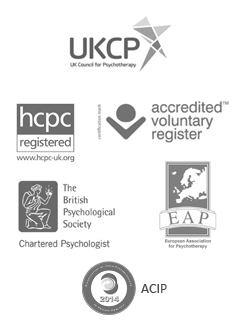Needing Friendships with Teachers
Reader’s Question
Ever since I was a child I haven’t had many friends, and when I was getting bullied that number went to zero. I had to make friends with my teachers and before long that’s what I was used to — sitting with them at lunch, conversing with them at recess — and when I moved to a new school and made friends I kept that habit just in case my friends decided to bail on me. Now, whenever a teacher doesn’t like me it keeps me up at night, obsessing over every little thing that I might’ve done wrong. When I have a favorite teacher I want to be there to help and relieve any stress they may have. But whenever I really do something wrong or feel like I’m annoying them it’s devastating; I feel like I’m letting down a god. So my question is:
Is it unhealthy to place my teacher on this a lot of a pedestal and to desire to be friends with them — not only to be friendly? Must i distance myself?
Psychologist’s Reply
It is very natural to admire teachers, to want to please them, and even to want friendships with them. Teachers frequently have qualities we wish for in ourselves — kindness, friendliness, wisdom, compassion, warmth -– and it is easy to become enamored of them. Teachers also focus on us, especially when we answer a question correctly or show effort in our work. Sometimes we make more meaning out of the attention, but mistakenly thinking that we have a unique relationship with a teacher that no one else has. All these thoughts and feelings are natural; it’s exactly how we manage them and what we do with them which makes the difference.
I can understand how teachers have already been especially kind to you, and how you feel their support and friendship when peers have not been as accepting (and have, instead, bullied). Sometimes when we have difficulty concerning others our own age (or, they have difficulty relating to us), we find much more in accordance with our teachers. However , whilst it is important to have our teachers and other trusted adults as our safety nets (much like you described when moving to a new school), it’s also important to continue to learn new ways to approach and make friendships with the others our own age. Some teachers can help with these skills, but often a trusted counselor at the school or perhaps a licensed therapist or psychologist outside of school can offer specific tools for helping friendships and peer relationships go more smoothly.
Try Online Counseling: Get Personally Matched
(Please read our crucial explanation below. )
Sometimes when individuals are concerned about what authority figures (like teachers) consider them, they can become anxious or flustered around them, and may also place them on a pedestal as you described. This can sometimes be a symptom of Social Panic , or Social Phobia . A qualified mental health practitioner will help determine if this might be going on for you, and when so , can offer structured methods to help you see teachers along with other authority figures in a far more realistic way. Teachers’ roles are to help their students learn, and students’ roles are to listen to their teachers and try their best with the lessons provided. Once we come to misconstrue the relationship as closer, we begin to cross boundaries that have an important purpose — to ensure that students learn.
You also mentioned always wanting to be there for your teachers to help them with their stress. This is an essential boundary that would be helpful for one to work on. It’s not any child’s job to simply help alleviate stress in adults — it is the job of other adults with whom they have age-appropriate friendships and relationships . If a teacher becomes annoyed, it may be simply because they notice this boundary being crossed. Listening to the teacher, asking for help on school related concerns (both the training material as well as peer conflicts), and following their guidelines is the appropriate way to have a good relationship with a teacher.
To answer your question, yes, it may be unhealthy for you to want a grownup like friendship with your teachers. Rather than thinking of it as distancing, think about the healthy boundaries described above. Perhaps consider how to channel your have to support and be friendly in to your own peer relationships in place of those with your teachers. As soon as you start experimenting with putting more energy (with counselor support if needed) into your same age friendships, my guess is that you will go along better with your teachers, may have less worry about them, and certainly will feel better about yourself, too.
Please read our Essential Disclaimer .
All clinical material on this web site is peer reviewed by one or more clinical psychologists or other qualified mental medical researchers. Originally published by Dr Elizabeth Chamberlain, PhD on and last reviewed or updated by Dr Greg Mulhauser, Managing Editor on.
https://askthepsych.com/atp/2016/01/19/wanting-friendships-with-teachers/
All copyrights because of this article are reserved to ask a therapist

